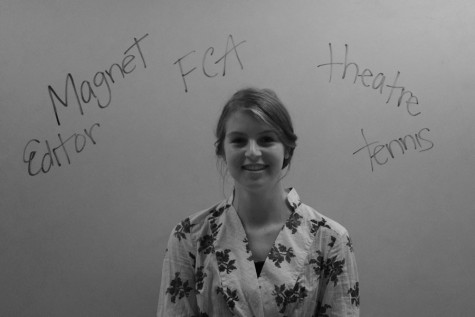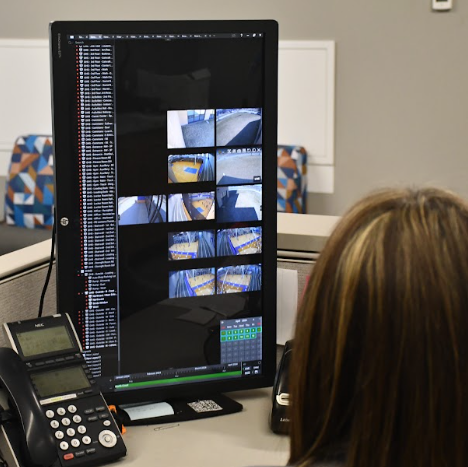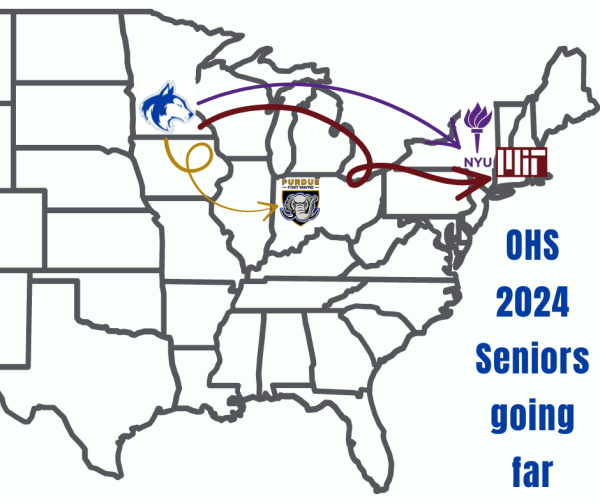Part II: The cost of education
How will the levy impact OHS
On Nov. 5, the Owatonna voting community will decide if they want to give the Owatonna school district more money. This is the 2013 Referendum. A referendum is an act of a legislative body proposing measures and then having people vote on it. The voters can either reject or approve of the referendum. The 2013 Referendum is also a levy. A levy is the act of collecting taxes from people. The 2013 Levy Referendum will raise taxpayers’ property tax by 68.84 dollars per year per acre. This is the first time since 2002 that the school district has asked the community for money. This levy, if it passes, will provide 1.8 million dollars over the next seven years.
The levy is a result of a statewide decision. The state of Minnesota raised funding for schools last year. However, during the previous years, the money the state promised to deliver was not delivered. The increase last year barely brought our school district even. Consequently, the money the district is currently receiving from the state is not enough to provide for all the programs currently running. The levy would fill in the gap.
If the levy passes, nothing much will change. Principal Mark Randall said, “We want to maintain what we have now. We want stability in our schools and we want to stabilize what we have.” If the levy passes, it will only stabilize the district and the current programs. Nothing new will be added. Nothing will be taken away. The district will have stability for three years and then it will be reevaluated. Principal Randall said, “The levy is not to implement new programs in our school. Its purpose is to help us keep the programs we have.”
If the levy does not pass, things will change drastically. Without the levy, the school district will have to cut 5.3 million dollars from the district budget in three years. This means things are going to go haywire at the high school. Class sizes will go up drastically, students will have less classes to choose from, the credit requirements will go down, and there will be less AP classes and less electives to pick from as well. The biggest change is the schedule. If the levy does not pass, the high school will probably go to a six period day.
In terms of impact to OHS, Principal Randall said, “We’ve had to make big cuts in the past. It resulted in a loss of a counselor, putting more responsibility and burdens on our current counselors. More cuts will affect the students more directly. Students will have larger classes and may not get the classes they want. More cuts are going to have a bigger effect.” And that is true. Larger classes might make learning harder and focusing more difficult as well. Not getting classes you want might make you angry and it could possibly make coming to school not as enjoyable, especially if you have none of the classes you wanted.
The levy not passing is also going to affect extra-curricular activities. Principal Randall said, “If the levy doesn’t pass, things in the extra-curricular world are going to get ugly.” If the levy does not pass and cuts have to be made, it is very possible that coaches of extra-curricular activities could be cut. This means that entire activities would be cut. But as of right now, if cuts are made, administration does not know what activities would be hit.
The student body also has an opinion about the levy. Junior Sarah Floy said, “I think it should have happened a long time ago. It was voted down last time and I’m glad it’s back on the docket. I hope it passes.” Hers was not the only opinion voiced. Senior McKenzie Holton said, “I think it won’t pass. Anytime we bring up raising property tax in this town, nobody votes for it. We desperately need the funding after the disaster with the state. I support it, but I’m not hopeful about it passing.”
In order for things to stay the same, the school district needs the funds. These funds will keep the programs and the classes, the four period day, and all of the activities and extra-curriculars. All of that could go away without the money from the levy. Either way, voting for the 2013 Referendum gives the community and opportunity to change the world through education.

I am the editor of Magnet.
I love cows, exact change, and Eeyore.
I am Mrs. Wagner's favorite.





